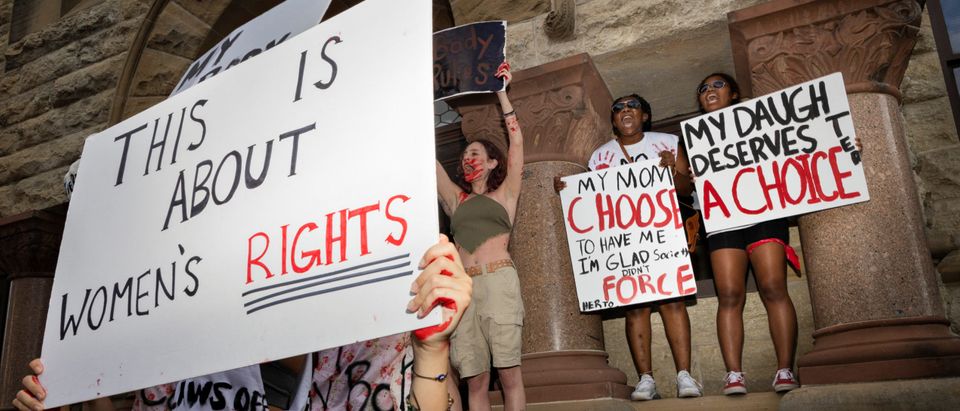A Texas law banning abortion except in cases where the life of the mother is threatened takes effect Thursday, but five local prosecutors in populous Texas cities have vowed to use their “discretion” to hamper its enforcement.
After the Supreme Court’s decision in Dobbs v. Jackson Women’s Health Center, 13 state laws prohibiting abortion, including those in Kentucky, Oklahoma, and Texas, were allowed to take effect. But dozens of local district attorneys, including 5 Texas prosecutors, signed onto a joint statement in June after the Dobbs decision was leaked, saying they “decline to use [their] offices’ resources to criminalize reproductive health decisions.”
“We are aware of this issue and it is a threat to the pro-life movement across the United States not just Texas,” Kim Schwartz, communications director for Texas Right to Life, told the Daily Caller. (RELATED: Michigan Judge Blocks Pro-Life State Abortion Law)
“We’ve known since about 2020 when Amy Coney Barrett was getting confirmed that local politicians pledged they’re not going to enforce total abortion bans — like district attorney and city councils ordering the police to prioritize illegal abortion as the last possible priority, like the city of Austin did,” Schwartz said.
District Attorney Mark Gonzalez of Nueces County told the Caller he can’t say his office won’t prosecute any cases involving the trigger law. But he added that “for the most part [his] stance is that [their] office will not get involved in the reproductive rights of women and their healthcare providers.”
Dallas County District Attorney John Creuzot directed the Caller to a statement released after the Dobbs decision was handed down which criticized the court’s opinion for erasing “nearly 50 years of women’s rights,” and vowed to use his “discretion” as prosecutor when enforcing the law.
“I want women across Texas, and especially here in Dallas County, to rest assured that my office will not stand in the way of them seeking the health care they need,” Creuzot said in the statement.
Texas Attorney General Ken Paxton directed the Caller to a statement issued the day after the Dobbs decision, where he vowed to pursue civil penalties against those who violate the law. Paxton said he would do “everything in [his] power” to uphold the law.
“Further, we stand ready to assist any local prosecutor who pursues criminal charges,” Paxton said in the statement.
New: @TXAG @KenPaxtonTX post-SCOTUS Dobbs judgment advisory is out.
“My office is specifically authorized to pursue and recover civil penalties for violations…& I will do my duty to enforce this law. We stand ready to assist any local prosecutor who pursues criminal charges.” pic.twitter.com/r9S1rXMvGU
— Brad Johnson (@bradj_TX) July 27, 2022
Brian Middleton, District Attorney for Fort Bend County, Texas, directed the Caller to a statement which clarified that his office would not allow blanket defiance of the Texas trigger law. But he added that “prosecution may be declined” if the allegation “does not vindicate a compelling State’s interest by its prosecution.”
Middleton told the Caller that while he cannot speculate on what actions Paxton may take to ensure prosecutors enforce the trigger law, people can express disapproval of actions from either prosecutors or the attorney general at the ballot box.
“District attorneys and the Attorney General are both elected offices, so the will of the people is most often how disapproval is expressed.”
District Attorneys Jose Garza of Travis County and Joe Gonzales of San Antonio, both of whom signed the June letter, did not respond to the Daily Caller’s request for comment.
Currently, providers violating the law face first-degree felony charges if the child dies and a second-degree felony charges if the child lives, in addition to civil penalties of at least $100,000 per violation, according to Paxton’s statement. Women having abortions, however, do not face charges.


